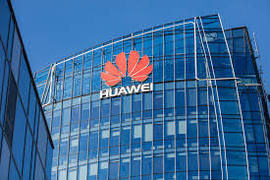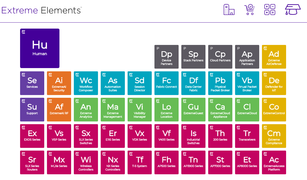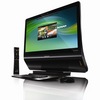If you're reading this entry, it means you've likely made a conscious decision to click on this page, and for that, I thank you. In return, I'd like to take a moment to tell you a little about myself, and how I came to this wonderful space we call VoIP, IP Communications, Converged Communications, Unified Communications... well, you can call it many things.
I started my professional career many years ago at a management consulting firm, where my primary focus was working extensively with American Express on its Annual Employee Survey, which meant dealing with some 80,000 survey responses each year. At the time, that seemed like a huge number, and for a survey, it is -- but it's nothing compared to the two to three million monthly visitors we get here at
TMCnet.
Anyway, after working on that project for more than five years, I switched gears and joined the publishing world at
Global Custodian, a global investment magazine, where I doubled as manager of the magazine's survey group and managing editor. Not a lot of down time there. It was a challenging environment, but one I enjoyed immensely, and it had its perks -- not everyone can say they've visited places like Singapore and Geneva.
But more than anything, what I learned there was that I truly enjoyed the publishing world, as well as working directly with our clients. So when the time came to move on, and the opportunity arose to join the TMC team, it seemed an ideal situation. Not only could I continue doing what I enjoyed, but I could do it in a space that is as exciting as any. The combination of a rapidly evolving environment and technology that was "real" -- after all, we all use various communications technologies every day -- was extremely inviting.
So, I joined TMC back in October of 2005, with at the very least an interesting day -- a few hours after I began my first day, my immediate supervisor,
The VoIP Authority, Greg Galitzine, informed me he needed to leave, and for good reason -- his wife was about to give birth to their third child. The following week was
ITEXPO West in Los Angeles, and the office was largely empty and I was left largely to myself for the first week and a half. But it was a memorable week and a half: The one thing that stands out is the constant hammering on the phones by one of our sales reps, affectionately knows as Frankie Show, who never let up once, continuing to entice local LA area professionals to head down to the show even on the final day of the event. Now that's dedication.
Now, almost three years later, it's evident to me that it's just that level of dedication that has helped TMC grow into the presence in the communications space it has become.
As for myself, I began working exclusively with our print publications, beginning with
INTERNET TELEPHONY, and the
IMS Magazine and
SIP Magazine as well, watching the latter grow into its current existence as
Unified Communications. As with any growing company, my role evolved, and I become more heavily involved with our growing Web site, TMCnet, as well, and now, have transitioned primarily to that medium. But all other things aside, what has made these past few years -- and God willing, the foreseeable future as well -- such a rewarding experience, is the team here at TMC, which is second to none.
EKL



















